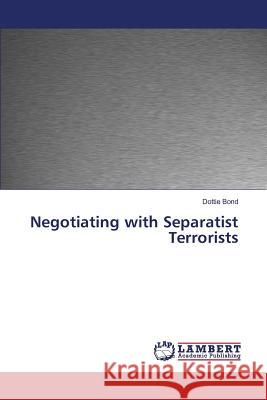Negotiating with Separatist Terrorists » książka
Negotiating with Separatist Terrorists
ISBN-13: 9783659827327 / Angielski / Miękka / 2016 / 132 str.
It is in the interest of this book to investigate why governments negotiate with separatist terrorists, and why those negotiations succeed or fail. The four cases analyzed in this book include: Sri Lanka and the Liberation Tigers of Tamil Eelam, (1983-2009); Russia and the Chechen Republic, (1994-2009); Israel and the Palestine Liberation Organization, (1993-1994); and Great Britain and the Irish Republican Army, (1985-2009). In this study, four basic questions are addressed: When and why do governments agree to negotiate with separatist terrorists? Is negotiation a viable solution to ending historic ethnic conflicts? Are certain peace agreements and negotiation strategies more successful than others? And why, after having secured a settlement, do tensions erupt and violations occur?
It is in the interest of this book to investigate why governments negotiate with separatist terrorists, and why those negotiations succeed or fail. The four cases analyzed in this book include: Sri Lanka and the Liberation Tigers of Tamil Eelam, (1983-2009); Russia and the Chechen Republic, (1994-2009); Israel and the Palestine Liberation Organization, (1993-1994); and Great Britain and the Irish Republican Army, (1985-2009). In this study, four basic questions are addressed: When and why do governments agree to negotiate with separatist terrorists? Is negotiation a viable solution to ending historic ethnic conflicts? Are certain peace agreements and negotiation strategies more successful than others? And why, after having secured a settlement, do tensions erupt and violations occur?











